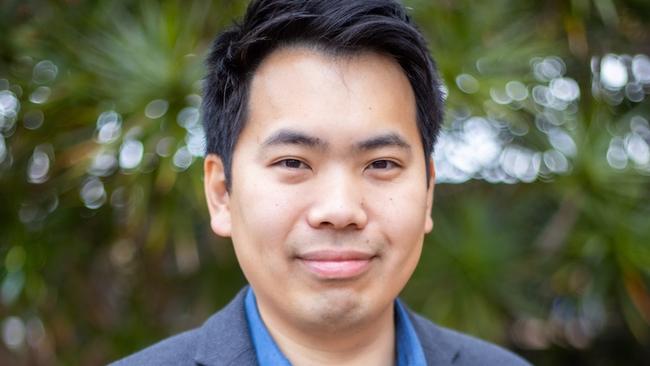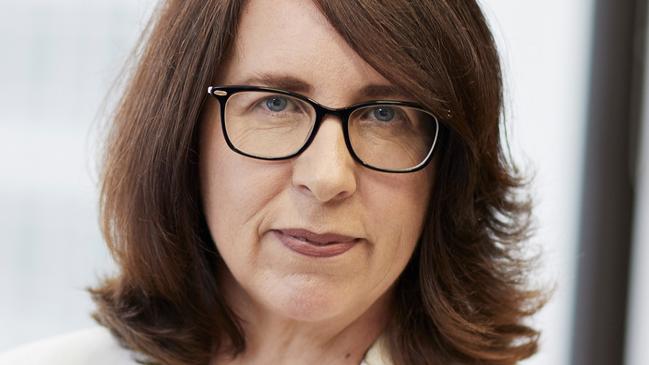Face-scanning technology is rising in Australia despite calls for clearer privacy laws, experts warn
It’s not just Kmart, Bunnings and The Good Guys using facial recognition technology. See who else is scanning your face.
Technology
Don't miss out on the headlines from Technology. Followed categories will be added to My News.
It’s not just big retail chains: smart cars, in-store billboards, and self-check-outs are also monitoring consumers’ faces and privacy experts are calling for greater restrictions on facial recognition technology before its use becomes “creepy”.
The call comes after a Choice investigation this week revealed Kmart, Bunnings and The Good Guys used facial recognition technology on customers in stores, and as Australia’s Privacy Commissioner said she would “closely” examine whether businesses were acting legally.
Curtin University marketing associate professor Dr Billy Sung said most Australians underestimated how much face-scanning technology was already deployed and he was “surprised to see people surprised” at its use.

In addition to “faceprints” captured in Bunnings, Kmart and The Good Guys stores, Dr Sung said anyone who has walked through a shopping centre has likely had their face scanned.
“Every time you go past ‘next gen’ signage in a shopping centre, you will see there’s a camera on top to recognise demographic information about you, like your gender, whether you’re looking at the sign, and a rough estimate of your age and ethnicity,” he said.
Dr Sung said the signs operated in “a grey area of privacy law” as they captured information about the public but did not share images.
But new versions of the technology, he said, could even capture the expression on consumers’ faces and whether they were happy with particular products or advertisements in stores.
“Is this ethically or morally correct? It’s trending into creepiness and into an area of privacy concern,” Dr Sung said.
“As technology develops, the legal regulations need to keep up.”
Other uses of the technology in Australia include face detection in large trucks, vehicles on mining sites, and smart cars, including Tesla’s Model 3 and Model Y that began using a camera to detect whether drivers were looking at the road in Autopilot mode in 2021.
A class-action lawsuit was filed against Tesla’s change in March, alleging it broke biometric laws in Illinois.
Some Australian states also used facial recognition technology during Covid home quarantine trials, 7-Eleven was forced to backtrack on its use of faceprints in its stores in 2021, and Coles and Woolworths faced a backlash after adding cameras to their self-checkout registers.
Both supermarkets said the cameras were used as a deterrent, rather than to capture recordings.
In the UK, however, self-checkout cameras are scanning faces to estimate a shopper’s age for alcohol sales.

Australian Privacy Commissioner Angelene Falk said she would be looking “closely” at retail stores’ use of facial recognition technology in Australia, and investigating not only whether customers were being warned about it but whether “using high privacy impact technologies” was worth the risks.
“My question will be is it a proportionate response to collect the facial templates of everyone who visits that store just in case there might be an incident? The second question is how customers are made aware of this,” she said.
“It’s almost like being asked to give your fingerprints in entering a store — it is very sensitive information and customers need to be made aware of it.”
Australian Privacy Foundation chairman David Vaile said Australia was “late to the party” when it came to clear rules for capturing customers’ biometric information and called for stronger protections for consumers, like those in Europe and New Zealand.
Mr Vaile said many consumers didn’t know enough about facial recognition technology, including which third-party software firms were processing, using and storing their information they collected, and informed consent was questionable.
“The idea that you walk past a sign (at a shop entrance) and you’ve given up all your rights and given your consent isn’t right,” he said.
“I don’t think most people appreciate that facial recognition is biometric data and they’re very much high risk.”
More Coverage
Originally published as Face-scanning technology is rising in Australia despite calls for clearer privacy laws, experts warn





